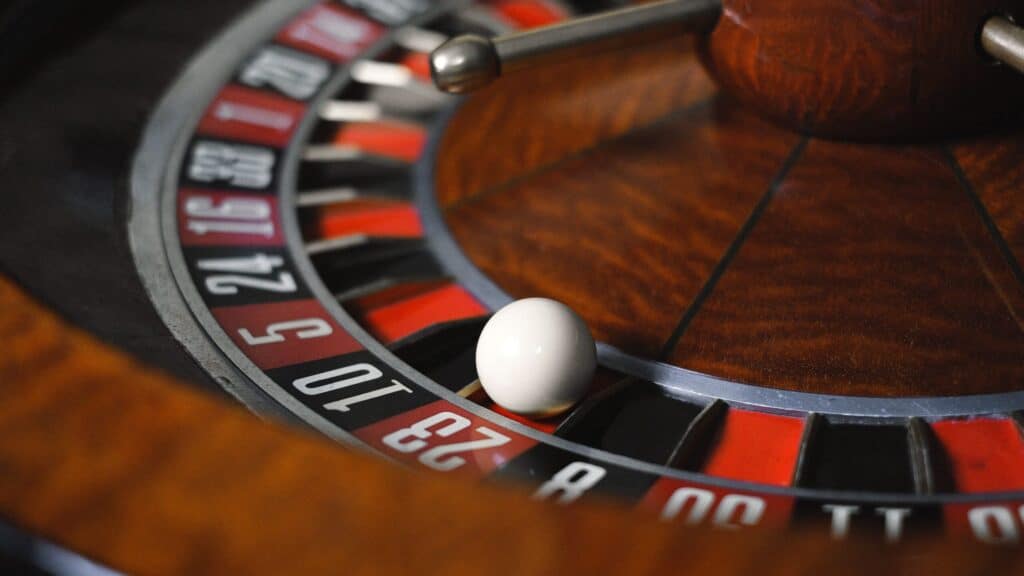Roulette, one of the most iconic and popular casino games, combines simplicity with excitement, offering players the thrill of watching a ball spin around a wheel before landing on a winning number. Despite its straightforward appearance, understanding the rules, types of bets, payouts, and odds can significantly enhance your gaming experience. Whether you’re a novice or an experienced player, this guide will provide comprehensive insights into the world of roulette, helping you maximize your chances of success.
The Basics of Roulette
Roulette is played on a wheel divided into numbered pockets, ranging from 0 to 36 in European roulette and 0, 00 to 36 in American roulette. The objective is simple: predict where the ball will land. Players place bets on the roulette table, which corresponds to different outcomes, such as specific numbers, groups of numbers, or color categories (red or black).
European vs. American Roulette
The primary difference between European and American roulette is the number of zero pockets. European roulette has a single zero (0), while American roulette includes an additional double zero (00). This extra zero increases the house edge in American roulette, making European roulette more favorable for players.
- European Roulette: House edge of 2.7%
- American Roulette: House edge of 5.26%
Understanding these differences can influence your choice of game, particularly if you’re looking to maximize your chances of winning.
Types of Roulette Bets
Roulette offers a variety of betting options, divided into two main categories: inside bets and outside bets. Each type of bet has its own set of odds and payouts, providing players with multiple strategies to explore.
Inside Bets
Inside bets are placed on specific numbers or combinations of numbers within the numbered grid on the roulette table. These bets typically have higher payouts but lower odds of winning.
- Straight Up: Betting on a single number. Payout: 35:1
- Split Bet: Betting on two adjacent numbers. Payout: 17:1
- Street Bet: Betting on three numbers in a row. Payout: 11:1
- Corner Bet: Betting on four numbers that form a square. Payout: 8:1
- Six Line Bet: Betting on two adjacent rows of three numbers. Payout: 5:1
Outside Bets
Outside bets are placed on broader categories, such as colors or groups of numbers. These bets offer lower payouts but higher odds of winning, making them a popular choice for new players.
- Red or Black: Betting on the color of the winning number. Payout: 1:1
- Odd or Even: Betting on whether the winning number is odd or even. Payout: 1:1
- High or Low: Betting on whether the winning number is between 1-18 or 19-36. Payout: 1:1
- Dozens: Betting on a group of 12 numbers (1-12, 13-24, or 25-36). Payout: 2:1
- Columns: Betting on a vertical column of 12 numbers. Payout: 2:1
Understanding Roulette Payouts
The payouts in roulette are directly related to the odds of winning each bet. The more unlikely an outcome, the higher the payout. Here’s a breakdown of some common bets and their payouts:
| Bet Type | Payout | Probability (European) | Probability (American) |
|---|---|---|---|
| Straight Up | 35:1 | 2.7% | 2.63% |
| Split Bet | 17:1 | 5.41% | 5.26% |
| Street Bet | 11:1 | 8.1% | 7.89% |
| Corner Bet | 8:1 | 10.8% | 10.53% |
| Red/Black | 1:1 | 48.6% | 47.37% |
| Odd/Even | 1:1 | 48.6% | 47.37% |
Understanding these payouts and probabilities can help you make more informed betting decisions and develop a strategy that aligns with your risk tolerance.
Odds and Probability in Roulette
While roulette is largely a game of chance, understanding the odds and probability of different bets can enhance your gameplay. The house edge ensures that the casino always has a slight advantage, but knowing the odds of various bets can help you make strategic choices.
Calculating Roulette Odds
The odds of winning a bet in roulette are determined by the number of ways a bet can win versus the total number of possible outcomes. For example, in European roulette, the odds of winning a straight-up bet on a single number are calculated as follows:
Odds = Number of winning outcomes / Total possible outcomes
Odds = 1 / 37 (since there are 37 pockets: 0-36)
Odds = 0.027 or 2.7%
In American roulette, the odds are slightly less favorable due to the additional double zero:
Odds = 1 / 38 (since there are 38 pockets: 0, 00, 1-36)
Odds = 0.0263 or 2.63%
These odds highlight why European roulette is often preferred by players looking to reduce the house edge.
Strategies for Playing Roulette
While roulette is a game of chance, players often use betting strategies to manage their bankroll and attempt to maximize winnings. Here are some popular strategies:
Martingale System
The Martingale system involves doubling your bet after each loss, with the idea that you will eventually win and recover all previous losses plus a profit equal to your original bet. This strategy works best for even-money bets, such as red/black or odd/even. However, it requires a significant bankroll and comes with the risk of hitting the table limit before you recoup your losses.
Fibonacci System
The Fibonacci system is based on the famous Fibonacci sequence (1, 1, 2, 3, 5, 8, etc.), where each number is the sum of the two preceding ones. Players increase their bets according to this sequence after a loss and revert to the starting point after a win. This strategy is less aggressive than the Martingale and can help manage losses more effectively.
Fun Facts About Roulette
Roulette has a rich history and some interesting quirks that add to its charm:
- The Devil’s Game: The numbers on a roulette wheel add up to 666, often referred to as the "Number of the Beast," which has earned roulette the nickname "The Devil’s Game."
- James Bond’s Favorite: The fictional spy James Bond is famously associated with roulette, particularly the bet on the number 17, which has become a popular choice for many players.
- Historical Origins: Roulette was invented in France in the 18th century and has evolved into the game we know today, with both European and American versions.
Conclusion
Roulette is a timeless casino game that offers a mix of simplicity, excitement, and strategic depth. Whether you’re drawn to the thrill of betting on a single number or prefer the safer odds of outside bets, understanding the rules, types of bets, payouts, and odds can enhance your experience and improve your chances of success. By familiarizing yourself with the various strategies and probabilities, you can make more informed decisions and enjoy the game to its fullest. So, the next time you hear the iconic call of "Place your bets," you’ll be ready to take on the roulette wheel with confidence!



